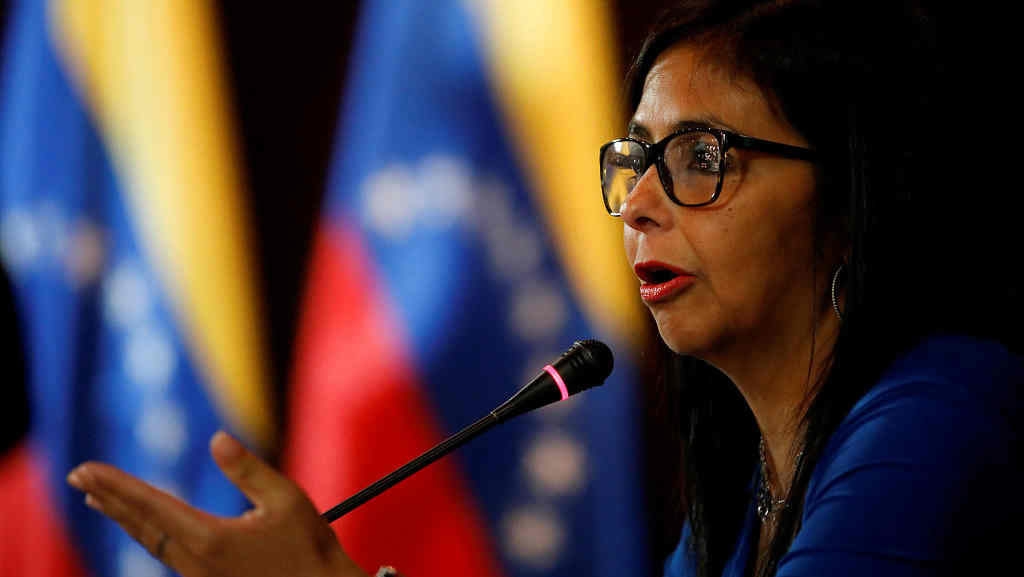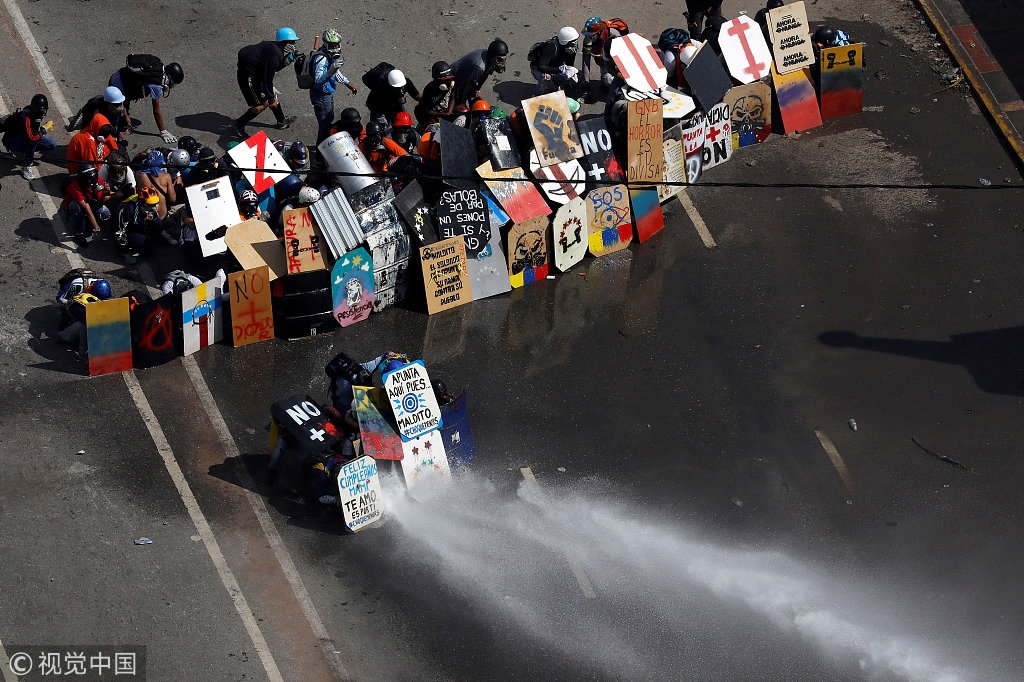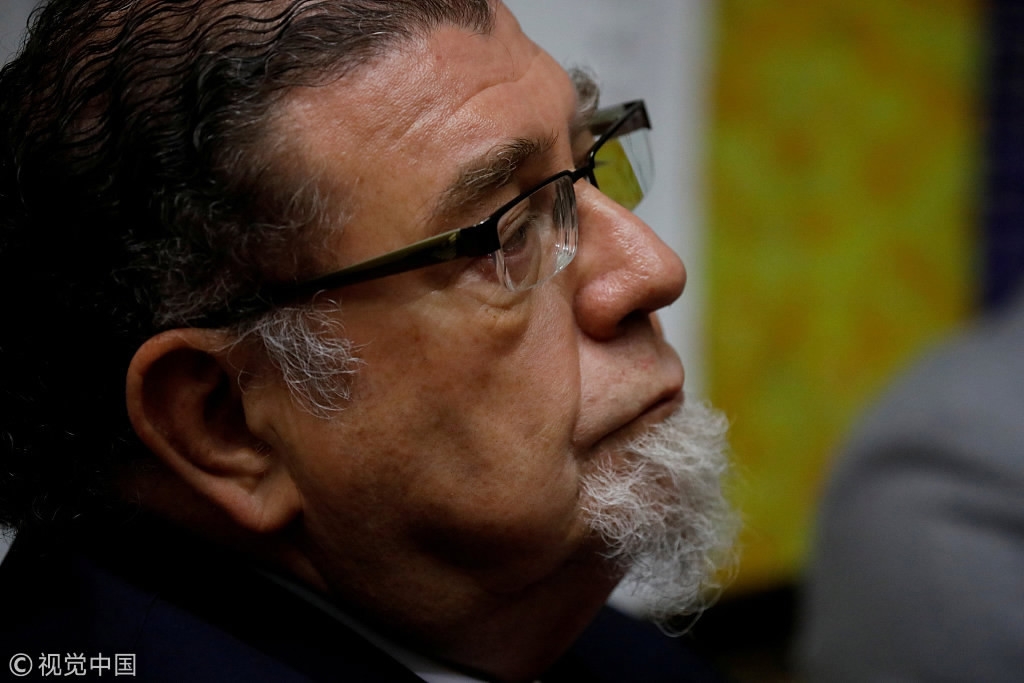
Politics
09:26, 24-Dec-2017
Venezuela freeing jailed activists, may expel diplomats
CGTN

Venezuela’s leftist government prepared to release some 80 jailed anti-government activists on Saturday, and threatened to expel envoys from Canada and Brazil after criticism over rights.
Delcy Rodriguez, head of the pro-government Constituent Assembly, told reporters the legislative superbody was recommending the detainees be given alternative punishments such as community service and compensation for victims.
Thirteen activists were later paraded in front of state TV cameras during a meeting with Rodriguez, a hardline ally of President Nicolas Maduro. They looked stony-faced during the meeting in the foreign ministry building.
Rights groups and foes of Maduro say authorities are unfairly holding 268 political prisoners for protesting against “dictatorship.” Maduro, the 55-year-old successor to Hugo Chavez, says all jailed activists are there on legitimate charges of violence and subversion.

Demonstrators take cover during riots at a march to the state ombudsman's office in Caracas, Venezuela, May 29, 2017. /VCG Photo
Demonstrators take cover during riots at a march to the state ombudsman's office in Caracas, Venezuela, May 29, 2017. /VCG Photo
“Let it be understood that the events promoted by the extremist Venezuelan opposition, which caused Venezuelans’ deaths, must not be repeated,” Rodriguez said.
Some 170 people died in violence around two bouts of anti-Maduro street protests in 2014 and earlier this year.
The assembly president told the detainees at the meeting they would return to their detention centers for medical tests then be freed to spend Christmas with loved ones.
Canada and Brazil angered
The releases, albeit with alternative sentences, could inject life into stuttering political talks between the government and opposition due to resume in the Dominican Republic in early January.
Western nations and Latin American neighbors have been increasingly critical of Maduro this year, accusing him of stamping on democracy and human rights. The government says foreign nations are trying to encourage a right-wing coup.
Rodriguez said the Constituent Assembly – which various foreign countries refuse to accept – was also recommending Brazil's ambassador Ruy Pereira and Canada's charge d'affaires Craig Kowalik both be declared "persona non grata."

Ruy Pereira, Brazil's Ambassador in Venezuela, attends a session at the National Assembly in Caracas, Venezuela, August 7, 2017. /VCG Photo
Ruy Pereira, Brazil's Ambassador in Venezuela, attends a session at the National Assembly in Caracas, Venezuela, August 7, 2017. /VCG Photo
The Canadian government, which has imposed sanctions on Maduro's administration, said it would not be cowed into easing pressure on "the anti-democratic Maduro regime" in Venezuela.
"Canadians will not stand by silently as the Government of Venezuela robs its people of their fundamental democratic and human rights, and denies them access to basic humanitarian needs," said Global Affairs Canada, the government department that manages its foreign and trade relations.
Brazil's foreign ministry also responded sternly. "If confirmed, the Venezuelan government's decision to declare Brazil's ambassador persona non grata shows once more the authoritarian stance of Nicolas Maduro's administration and its lack of willingness to engage in any dialogue," it said, promising reciprocal measures.
US President Donald Trump's administration has been especially critical of Maduro, also imposing sanctions on him and other senior Venezuelan officials this year.
Under new stewardship with the arrival of charge d'affaires Todd Robinson last week, Washington's embassy in Caracas called on Saturday for the freedom of all jailed activists.
"We urge Maduro's regime to respect human rights," it tweeted. "Free them during this holiday time."
Source(s): Reuters

SITEMAP
Copyright © 2018 CGTN. Beijing ICP prepared NO.16065310-3
Copyright © 2018 CGTN. Beijing ICP prepared NO.16065310-3